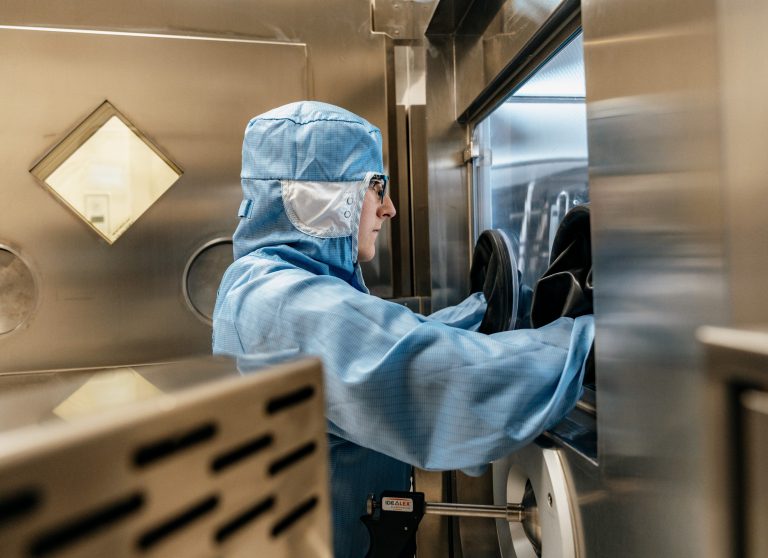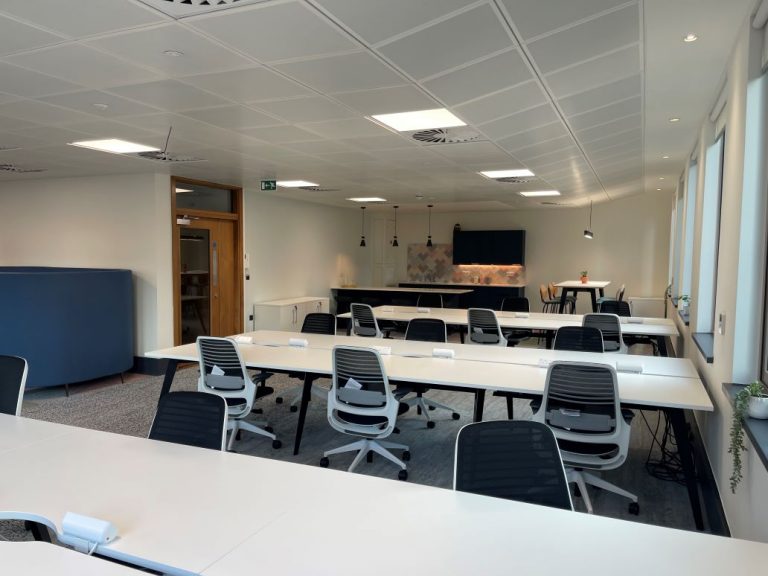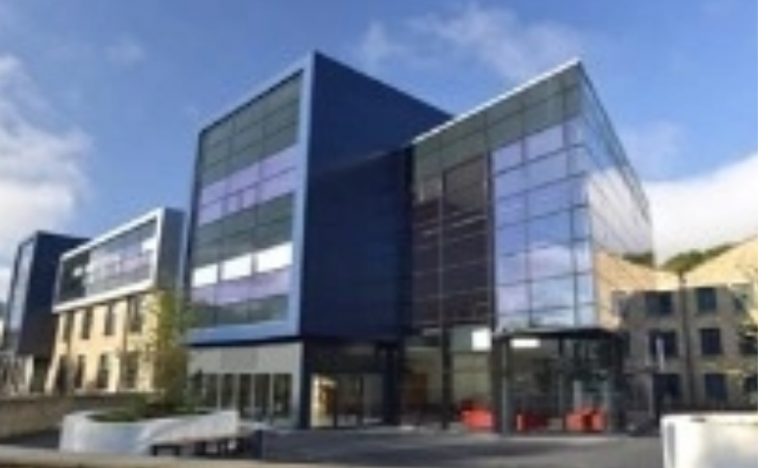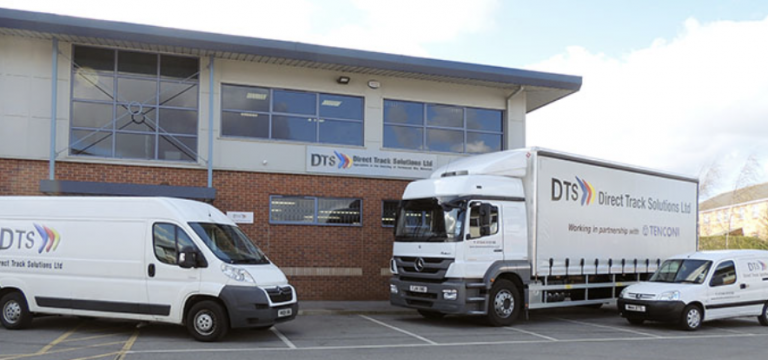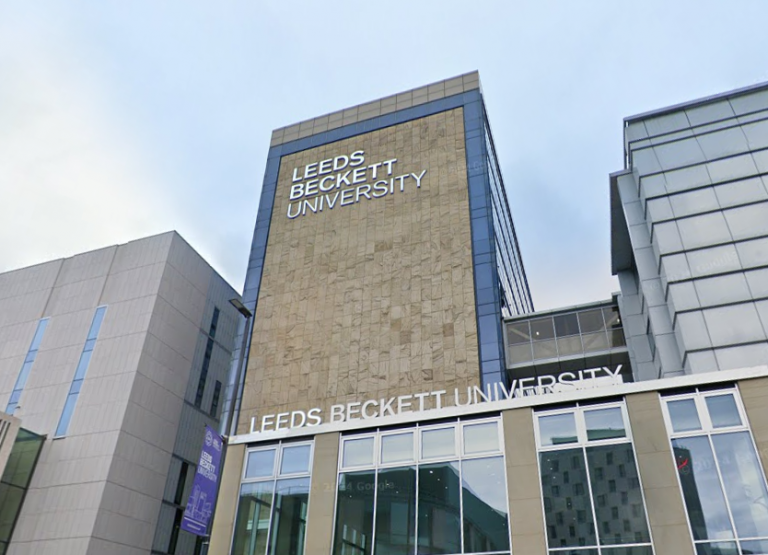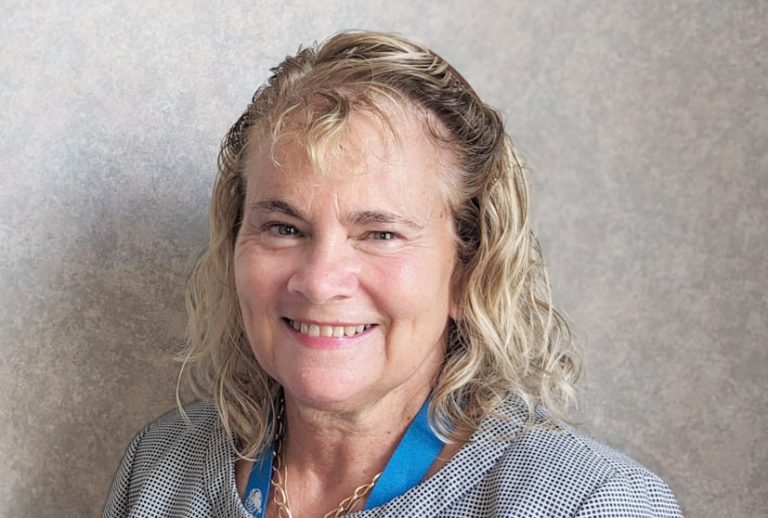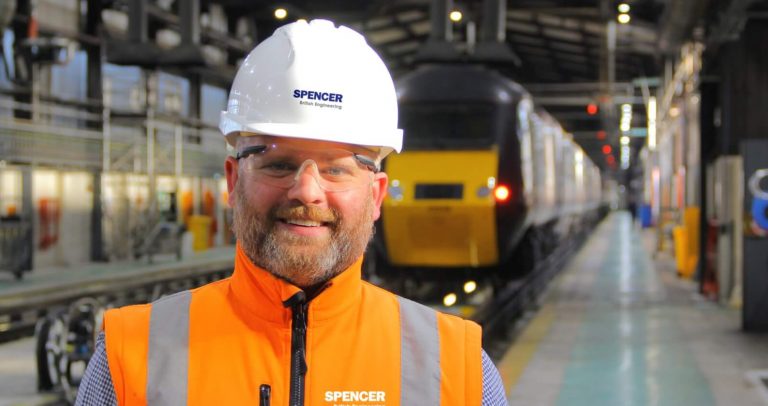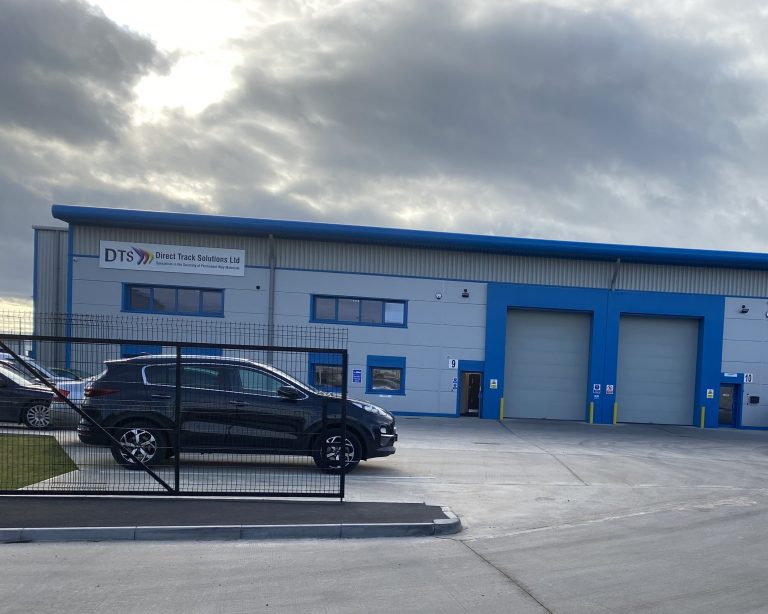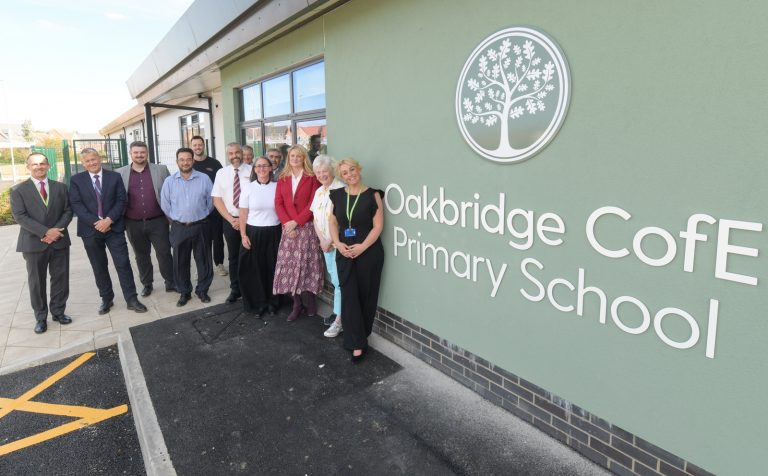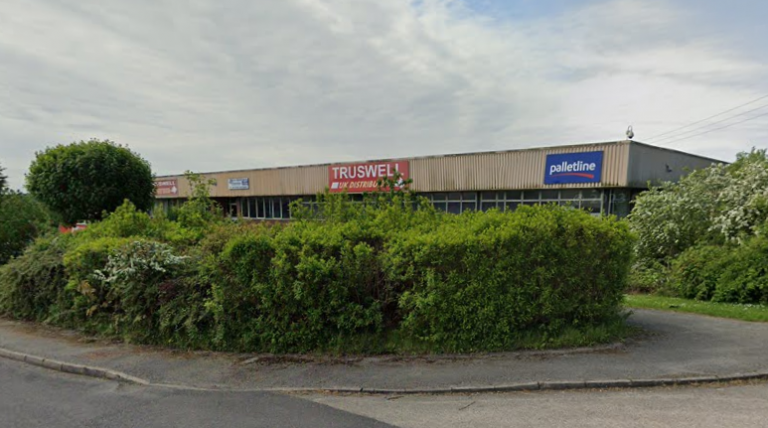Opening of £9m research centre brings new hope to cancer, dementia and heart disease patients across the North
Duo of lettings secured at boutique office in Leeds
Kromek wins £2m government contract
A company with its R&D centre at Huddersfield has won a £2m government contract to supply the MoD with radiation detectors.
Under the contract Kromek must supply the products by April next year.
The contract, which was awarded after a competitive tender process, is for the supply of the Group’s D5 RIID, a handheld, highly-sensitive gamma and neutron detector, along with the Group’s Alpha Beta probe attachment and other associated products.
Launched in November 2023, the Alpha Beta probeconnects directly to the D5 RIID to enable alpha and beta radiation to be detected, allowing the single, small form factor upgraded device to detect all types of radioactive material.
Arnab Basu, CEO of Kromek, said: “We are delighted to have won this important contract from the UK MOD, which is a significant strategic customer for Kromek. That it was awarded after a rigorous tender process provides excellent endorsement of the strength of our solution. It is also great validation to receive this key order for our Alpha Beta probe so soon after its launch at the end of last year.
“With the Alpha Beta probe upgrade, our D5 RIID is one of the most versatile handheld radiation detectors available today. We are looking forward to delivering this contract and supporting UK national defence efforts and to continuing to strengthen our relationship with this important customer.”
Swiss firm steps in to acquire South Yorkshire specialist railway company
Proposed merger between Vodaphone and Three could lead to price rises, fears CMA
“We will now consider how Vodafone and Three might address our concerns about the likely impact of the merger on retail and wholesale customers while securing the potential longer-term benefits of the merger, including by guaranteeing future network investments.”
The CMA has also provisionally found that the merger would negatively impact ‘wholesale’ telecoms customers – Mobile Virtual Network Operators such as Lyca Mobile, Sky Mobile and Lebara – which rely on the existing network operators to provide their own mobile services. The merger would reduce the number of network operators from four to three, making it more difficult for MVNOs to secure competitive terms, restricting their ability to offer the best deals to retail customers. While identifying these concerns, the CMA has also found that the merger, by integrating the Vodafone and Three networks, could improve the quality of mobile networks and bring forward the deployment of next generation 5G networks and services, as claimed by Vodafone and Three. But the CMA currently considers that these claims are overstated, and that the merged firm would not necessarily have the incentive to follow through on its proposed investment programme after the merger. As a result, the CMA has provisionally concluded that the merger would lead to a substantial lessening of competition in the UK – in both retail and wholesale mobile markets. The CMA will now consult on its provisional findings. It will also consult on potential solutions to its competition concerns, including the options set out in its remedies notice (also published today). These include legally binding investment commitments overseen by the sector regulator, and measures to protect both retail customers and customers in the wholesale market. The CMA will retain the option to prohibit the merger should it conclude that other remedy options will not address its competition concerns effectively.UK Centre for Events Management in Leeds collaborates with Whitecap Consulting
DJH to take on the Three Peaks in aid of Macmillan Cancer Support
£3m provided for new programme supporting innovation and growth across South Yorkshire
Sibling companies reach finals in five award categories
Leeds City Council names interim Chief Exec
York firms meet delegation from Japan to talk about highway technology
York and North Yorkshire businesses and local authorities have met representatives from Tokyo Metropolitan Government in a move said to represent an important global partnership for the region’s manufacturing economy.
Goole tobacco smugglers get prison terms
Spencer Group takes on quartet of apprentices
Fully funded business support across Greater Lincolnshire and Rutland
Dinnington’s Direct Track Solutions sold to Swiss company
West Yorkshire’s green sector set for explosion after bringing in £8.1bn to region’s economy in a year
- West Yorkshire’s green technologies and services sector is valued at £8.1 billion and expected to grow to £11.1 billion by 2026 – a 37% rise. Sales in the sector grew by 6.1% from 2020/21 to 2021/22 and 6.4% from 2021/22 to 2022/23, mirroring UK trends.
- The top three sub-sectors in the region by sales in 2022/23 were: Wind – £1,248 million in sales, 6,926 employees and 422 businesses; Building Technologies – £895 million in sales, 7,325 employees and 377 businesses; and Alternative Fuel Vehicles – £877 million in sales, 5,578 employees and 326 businesses
- The three largest exporting sub-sectors in West Yorkshire in 2022/23 were Energy from Waste (£89.4 million), Alternative Fuels (£72.2 million), Alternative Fuel Vehicle (£50.1 million)
- West Yorkshire’s GTS exports in 2023 were valued at £500 million, representing 2.9% of the UK’s GTS exports and aligning with West Yorkshire’s 2.9% share of the overall UK GTS 2023 market. West Yorkshire contributed 3.3% to England’s GTS 2023 export market, slightly lower than its 3.4% share of England’s GTS 2023 sales. Notable exporting sub-sectors included Energy from Waste and Alternative Fuels.
- Leading sub-sectors include wind, building technologies and alternative fuels while emerging sectors include carbon finance, geothermal and air-source heat pumps, all expected to see over 60 per cent increase in sales
Work completes on new Northallerton primary school
Sale and leaseback of 70,865 sq ft industrial building agreed in Barnsley
Leeds City Council backs first phase of mass transit scheme
Camper van specialist secures grant to speed up productivity
A Barnsley manufacturer who has built more than 3,000 camper vans has invested in cutting edge technology to speed up production.
Wellhouse Leisure has bought a CNC machine with the support of a Business Productivity Grant secured through the Enterprising Barnsley programme.
The grant, designed to help SMEs improve productivity, is supported by the South Yorkshire Mayoral Combined Authority (SYMCA) and part-funded by the government’s UK Shared Prosperity Fund (UKSPF).
It has been put towards the cost of the £83,000 Biesse Rover K FT machine which will now be used by Wellhouse to cut all component wooden parts for fitted furniture in their van conversions. Previously, the company sub-contracted this task to a business in Leeds.
Wellhouse Leisure CEO David Elliott said: “Having our own CNC machine on-site will save us so much time and money. We’ve worked out that we’ve paid out more than £53,000 over the years so our joiners could go and use someone else’s machine. On top of that, add the time and money spent on them going back and forth on a 70-mile round trip to Leeds.
“Having our own CNC machine cuts all that out; and eradicates any little hold-ups when we need to amend a piece or cut a replacement. It will speed up each job and make life easier for us all round – we estimate it will pay for itself within two years.”
David is planning to develop new products and explore new markets with the in-house CNC machine too. He is looking into the manufacture of flat-pack furniture kits to sell to other camper van companies and the manufacture of fittings for garden buildings and man sheds.
Business support advisor at Enterprising Barnsley Paul Johnson said: “We’re very pleased to support this latest bold move by Wellhouse Leisure to improve productivity and operational efficiencies at work. It’s great to see a manufacturing business continue to invest in Barnsley and grow. It highlights the strength of Barnsley as a great place to do business.”
Enterprising Barnsley has previously supported Wellhouse Leisure to invest in other machinery and software; developments in lean manufacturing; skills training to support new product ventures and engagement with a borough-wide Business Productivity Group.
David set up Wellhouse Leisure in 2002, building on a lifetime of experience in van conversions, having previously run Deepcar Motorhomes with his Dad.
He and wife Sarah now employ 21 people, and their Barugh Green factory manufactures, services, repairs and sells made-to-order and in-stock campers to customers nationwide.
The company has manufactured more than 3,000 conversions over the last 22 years, working with quality base vehicles such as the Toyota Alphard, Ford Transit, Nissan Serena and Honda Elysion.
David said: “As a business we’ve never been driven by price but always concentrated on quality and want to deliver the best camper van conversions on the market.
“Using CNC-cut pieces for our fitted furniture means we can guarantee precision and consistency which helps us deliver strong, durable and rattle-free cabinets for our premium camper vans.”
The Business Productivity and Digitisation grant is being delivered across South Yorkshire via part-funding from South Yorkshire Mayoral Combined Authority (SYMCA) and £5.2m of investment through the UK Shared Prosperity Fund (UKSPF).
Companies who secure a grant can put it towards either a capital or revenue project. The funded initiative must identify and address a challenge to business productivity.


